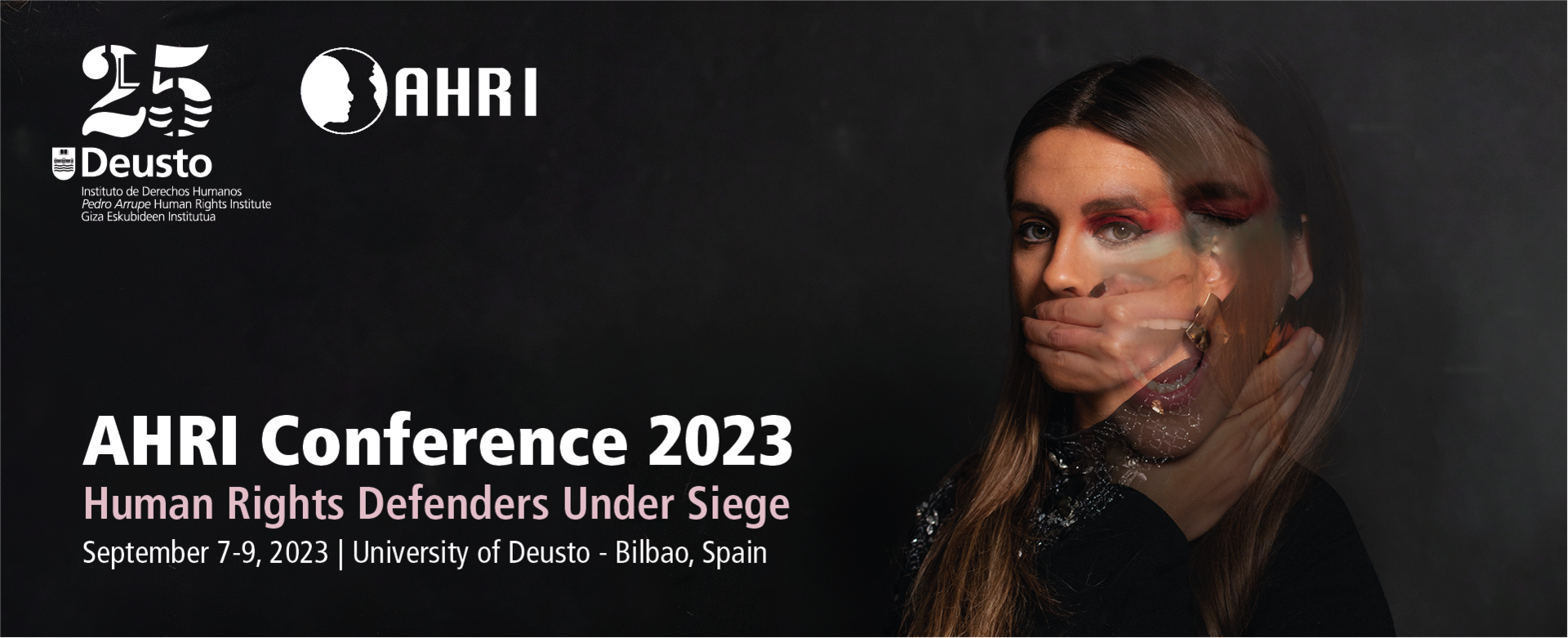Adoption of the Declaration on Human Rights Defenders: the outcome of AHRI Conference in Bilbao

The international conference held at the University of Deusto in Bilbao from September 7 to 9, 2023, organized by the Pedro Arrupe Institute of Human Rights in collaboration with the Association of Human Rights Institutes (AHRI), addressed the risky role of human rights defenders in various countries. Following the event, a declaration was adopted, emphasizing the crucial importance of human rights defenders and the need to ensure a safe environment for their work.
In this statement by the Association of Human Rights Institutes (AHRI), they mark the 75th anniversary of the Universal Declaration of Human Rights (1948) and the 25th anniversary of the Declaration on Human Rights Defenders.
The primary objective of this statement is to emphasize the crucial role played by Human Rights Defenders (HRDs) in upholding human rights in democratic societies. The AHRI stresses the legitimacy of their work, especially in light of deteriorating conditions for HRDs in many parts of the world.
The statement highlights the significance of the Declaration on HRDs, which enshrined the right to defend human rights and other rights necessary for HRDs to promote human rights for all. These rights include freedom of assembly, association, opinion, and expression, as well as the right to access international bodies, an effective remedy, funding for their work, and protection.
It acknowledges the positive impact of the Declaration on HRDs, leading to legal and institutional developments, including the creation of Special Rapporteurs on HRDs and the recognition of the role of environmental defenders. The statement also mentions progressive jurisprudence that supports the work of HRDs and calls for cross-fertilization among judicial bodies.
However, it recognizes limitations in the Declaration, such as the lack of specific provisions addressing the stigmatization and criminalization of HRDs and the transnational nature of activism and repression. It also fails to address the unique threats faced by specific groups of HRDs, such as women, LGBTQ+ activists, environmental defenders, journalists, scholars, indigenous peoples' defenders, child rights defenders, and those with disabilities. Additionally, the Declaration does not specify the duties of non-state actors like armed groups and private companies.
Given the growing challenges faced by HRDs, including threats, violence, and restrictions on their rights, the AHRI calls on the international community, organizations, states, governments, non-state actors, and academia to take effective measures to protect HRDs, support their activities, and create an enabling environment for their work. This includes ensuring accountability for violations of HRDs' rights and providing them with an effective remedy and full reparation.

